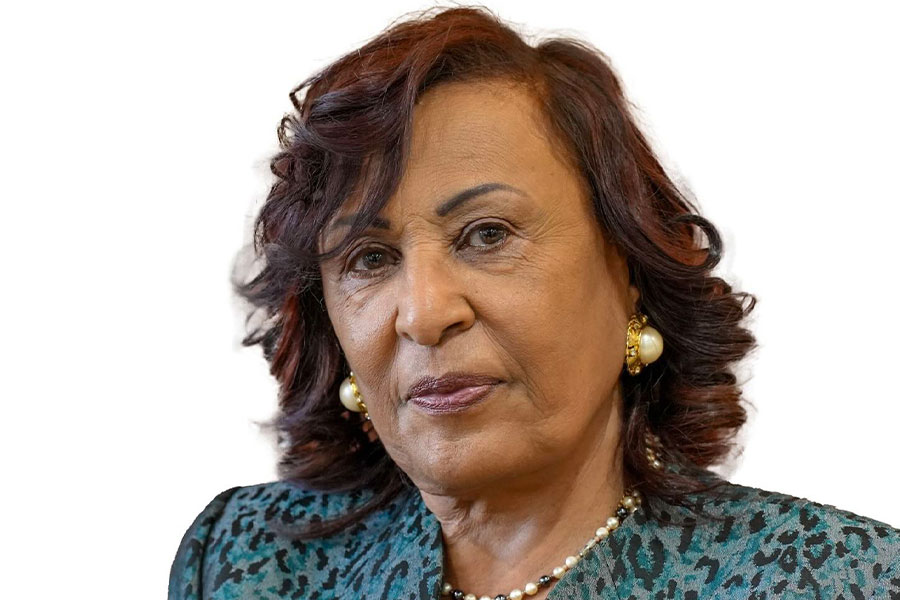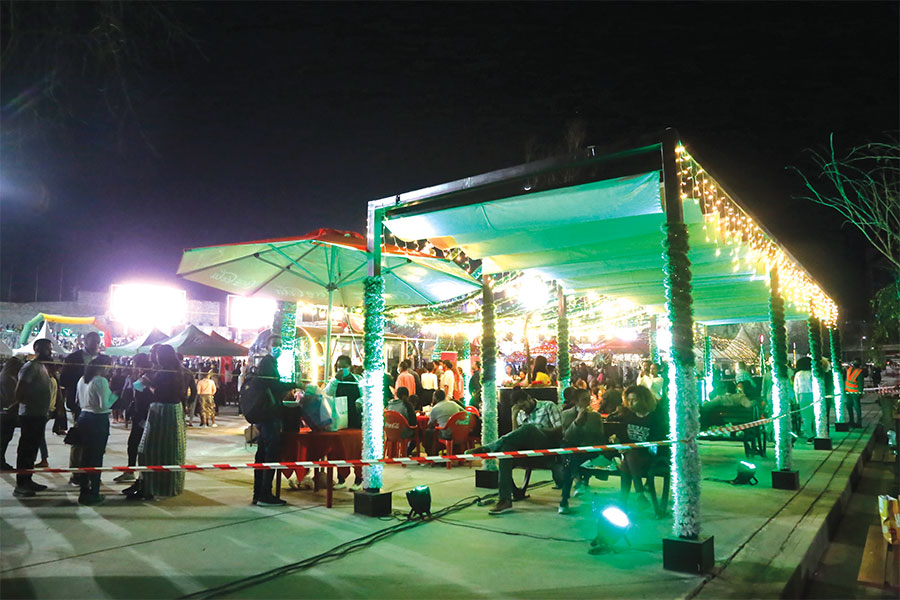
Radar | Jul 13,2020
May 23 , 2020
By GELILA SAMUEL ( FORTUNE STAFF WRITER
)
The Ethiopian Bankers Association, the consortium of all commercial banks, has asked the government to issue banknotes in higher denominations, including 200 and 500 Br notes.
The 0.4pc average weekly depreciation of the Birr and the increased public demand for 100 Br notes has pushed the Association to propose the issuance of higher denominations. The Association also recommended the reissuing of new 50 and 100 Br notes, mentioning that cash worth close to 113 billion Br is roaming outside of banks, as a means of reverting the money back to the banking system.
The Association clarified that the change should not alter the security features of the notes but rather replace the whole note with the newest security features.
There should not be any problem with changing notes or the introduction of bills, according to Abie Sano, president of the Commercial Bank of Ethiopia and the Association.
“The question is does the country have the budget for it,” Abie said. “Looking at the bankers’ position, the situation isn’t looking good. There is an actual need for a drastic measure like this.”
The amount of cash in the pockets of people currently is not out of the ordinary from a historical perspective, according to a source from the National Bank of Ethiopia (NBE).
"This is what we would call a high opportunity cost, changing notes or introducing new bills," he said.
The central bank's expenses for printing money reached 714.7 million Br three years ago. So far, the governing bank has injected close to 230 billion Br in the history of the bank, intending to reach 250 billion Br by this July.
There is close to 186 billion Br in circulation in the economy, 91.5 billion of which is cash outside of banks, according to the regulatory bank's first-quarter report. This figure is 21.5 billion Br lower than the Association's estimation.
Beginning last week, following suit with the global practice, the central bank issued a new directive to limit the cash withdrawal from banks and microfinance institutions. The new directive has pegged the cash limit for individuals at 200,000 Br daily and one million Birr monthly. For businesses, the daily cap is 300,000 Br and the monthly cap is 2.5 million Br, respectively.
The directive was followed by the recommendation of the Association to the central bank for the mitigation of the liquidity crunch that has affected banks in the last couple of months. The central bank's rationale behind the issuance of the directive is to promote a non-cash economy, contest fraud and hoarding, reduce the risk of liquidity problems and minimise the cost of printing money.
If this is taken in good faith and the rationale behind it is understood, this measure will promote digital transactions, according to Dereje Zebene, president of Zemen Bank.
With the large quantity of Birr notes in circulation and the continued rise in prices, it is observed that the 100 Br note is left to bear the increasing demand pressure of money transactions, according to Alemseged Assefa, former vice-governor of the National Bank of Ethiopia.
“It also highlights that the public uses for transactions or holds more than 80pc of 100 Br notes, hence creating the need for higher bills to support the currency notes,” said Alemseged.
Putting bigger denominations of 20, 200 and 500 Br into circulation will have multiple economic advantages and benefits, according to Alemseged.
“They would greatly help reduce the huge expenses of the frequent printing of existing notes," he said.
The ATMs could likewise be fed with smaller numbers of notes of higher value, further reducing the downtime of the machines due to the frequent overload of bills, according to the ex-vice governor.
PUBLISHED ON
May 23,2020 [ VOL
21 , NO
1047]

Radar | Jul 13,2020

News Analysis | Oct 30,2021

Radar | Jan 21,2023

Fortune News | Jun 29,2025

Verbatim | May 31,2025

Radar | Apr 30,2022

Fortune News | Jan 07,2022

Fortune News | Nov 16,2024

Sponsored Contents | Jun 17,2021

Radar | Jun 01,2019

Dec 22 , 2024 . By TIZITA SHEWAFERAW
Charged with transforming colossal state-owned enterprises into modern and competitiv...

Aug 18 , 2024 . By AKSAH ITALO
Although predictable Yonas Zerihun's job in the ride-hailing service is not immune to...

Jul 28 , 2024 . By TIZITA SHEWAFERAW
Unhabitual, perhaps too many, Samuel Gebreyohannes, 38, used to occasionally enjoy a couple of beers at breakfast. However, he recently swit...

Jul 13 , 2024 . By AKSAH ITALO
Investors who rely on tractors, trucks, and field vehicles for commuting, transporting commodities, and f...

Jul 12 , 2025
Political leaders and their policy advisors often promise great leaps forward, yet th...

Jul 5 , 2025
Six years ago, Ethiopia was the darling of international liberal commentators. A year...

Jun 28 , 2025
Meseret Damtie, the assertive auditor general, has never been shy about naming names...

Jun 21 , 2025
A well-worn adage says, “Budget is not destiny, but it is direction.” Examining t...